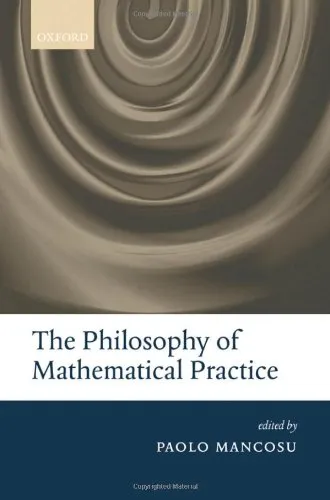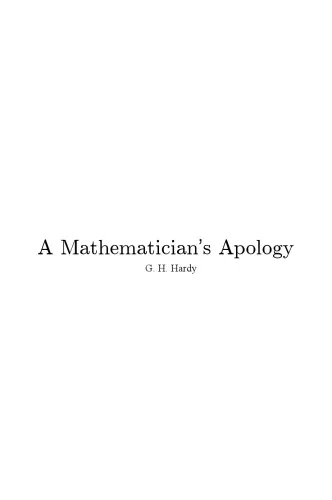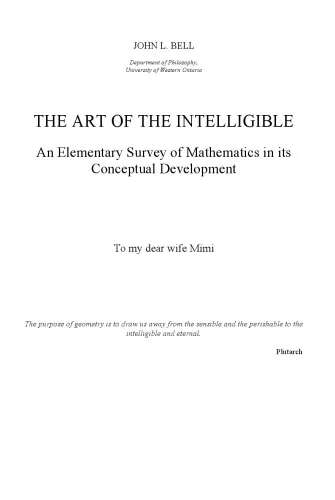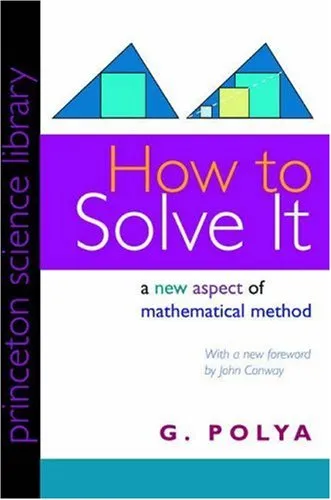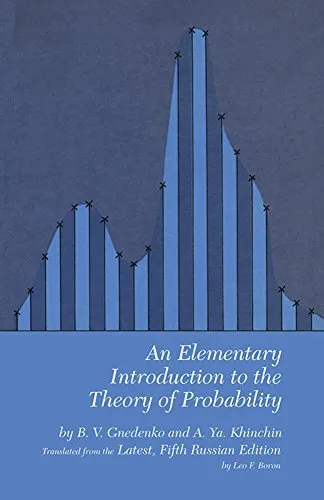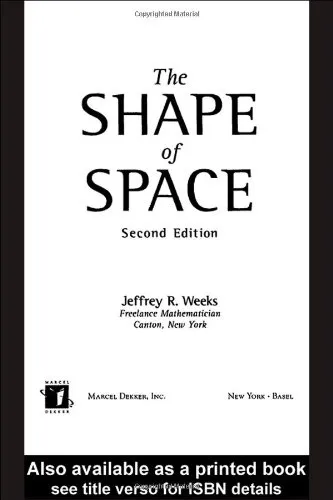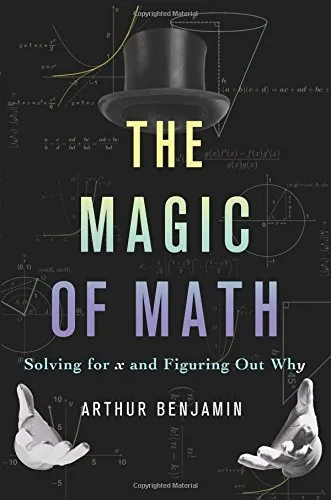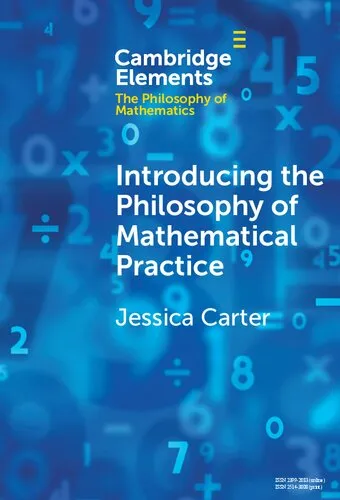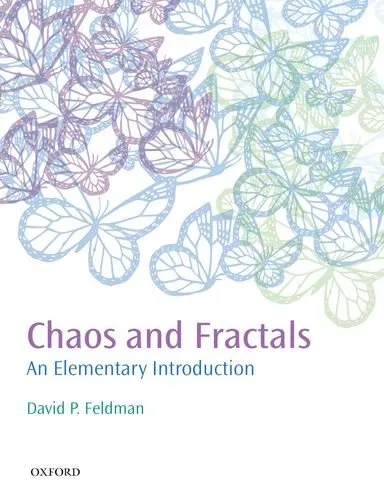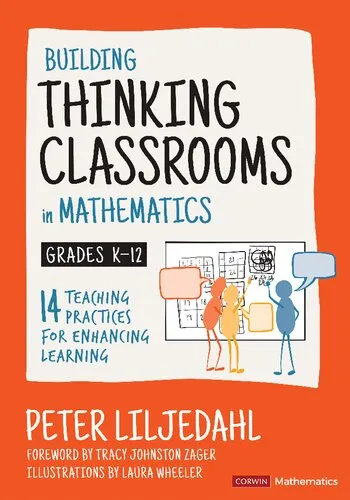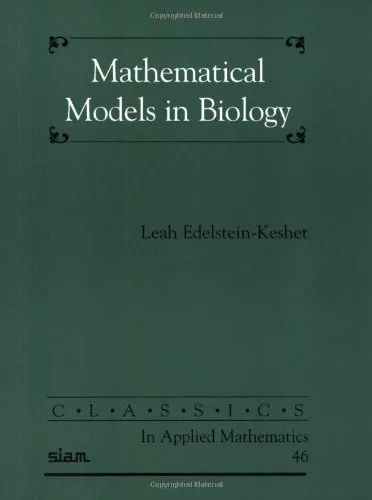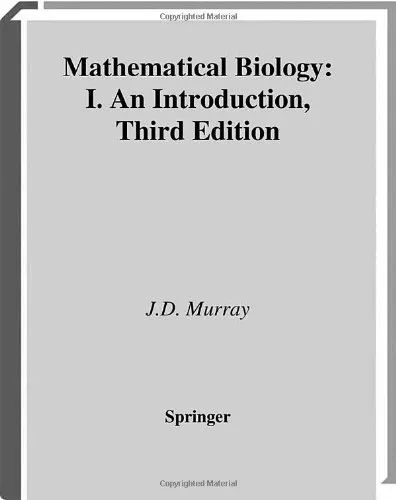The Philosophy of Mathematical Practice
4.6
بر اساس نظر کاربران

شما میتونید سوالاتتون در باره کتاب رو از هوش مصنوعیش بعد از ورود بپرسید
هر دانلود یا پرسش از هوش مصنوعی 2 امتیاز لازم دارد، برای بدست آوردن امتیاز رایگان، به صفحه ی راهنمای امتیازات سر بزنید و یک سری کار ارزشمند انجام بدینکتاب های مرتبط:
معرفی جامع کتاب «The Philosophy of Mathematical Practice»
کتاب The Philosophy of Mathematical Practice شاهکاری از پائولو مانکوسو است که در آن به بررسی جنبههای فلسفی و عملی ریاضیات پرداخته شده است. این کتاب با نگاهی نوآورانه، روشی متفکرانه و تحلیلی به فلسفه ریاضیات ارائه میدهد و توجه بسیاری از پژوهشگران، ریاضیدانان و فیلسوفان را به خود جلب کرده است.
خلاصهای جامع از کتاب
کتاب The Philosophy of Mathematical Practice در تلاش است تا ریاضیات را نه تنها به عنوان رشتهای انتزاعی، بلکه به عنوان یک فعالیت انسانی با تأثیرات واقعی بر فرهنگ و علم بررسی کند. پائولو مانکوسو در این کتاب به دقت جنبههای مختلف عمل ریاضیدانان در طول تاریخ را تحلیل میکند و نشان میدهد که چگونه فرایندهای مختلف کشف و اثبات در ریاضیات، رابطه تنگاتنگی با فلسفه دارند.
این کتاب از مسائل مختلفی چون نقش مفاهیم اثبات، اهمیت زبان ریاضیات در کشفها، روابط میان مدلهای ریاضی و جهان واقعی، و همینطور چگونگی بازتاب مفاهیم فلسفی در عمل ریاضی پردهبرداری میکند. مانکوسو در بخشهای مختلف کتاب تلاش دارد نشان دهد که فلسفه ریاضیات نمیتواند بدون توجه به فرآیندهای عملی واقعی، تصویری کامل و دقیق فراهم آورد.
با مروری بر موضوعاتی چون ابزارهای ریاضیاتی، فرم و قالب اثباتها، و تأثیر تواناییهای شناختی انسان بر ساختارهای ریاضی، این کتاب تصویری جامع از رابطه میان فلسفه و ریاضیات ارائه میدهد.
نکات کلیدی و درسهایی از کتاب
- نقش عمل واقعی ریاضیات در درک مفاهیم فلسفی.
- اهمیت بازبینی تاریخی فرآیندهای کشف و اثبات در ریاضیات.
- ارتباط بین زبان ریاضی و واقعیت در بررسی فلسفی.
- درک نقش ابزارهای ریاضیاتی در گسترش علم.
- نقش اثباتها و مفاهیم در اخلاق و شناخت علمی.
جملات معروف از کتاب
"Understanding mathematics requires not only logical formalization but also appreciation of the historical and practical dimensions of mathematical thought."
"Mathematical practice is deeply intertwined with human cognitive capacities and cultural contexts, shaping the very nature of its processes and discoveries."
چرا این کتاب مهم است؟
کتاب The Philosophy of Mathematical Practice یکی از کتابهای ضروری برای افرادی است که میخواهند فهم عمیقتری از رابطه میان ریاضیات و فلسفه کسب کنند. این کتاب، هم برای پژوهشگران و هم برای علاقهمندان به تاریخ و فلسفه علم، منابع ارزشمندی فراهم میکند. به ویژه برای کسانی که معتقدند ریاضیات فقط یک زبان انتزاعی نیست، بلکه عملی انسانی و فرهنگی است، این کتاب روشنگر است.
همچنین، این کتاب بستری مناسب برای تأمل بیشتر در نحوه ارتباط میان ابزارهای ریاضی و کشفهای علمی فراهم میکند. پائولو مانکوسو نشان میدهد که فلسفه ریاضیات دارای جنبههای عملی است که باید مورد توجه قرار گیرد و به همین دلیل توانسته است توجه بسیاری از متخصصان در زمینههای مختلف را جلب کند.
Introduction to "The Philosophy of Mathematical Practice"
"The Philosophy of Mathematical Practice" by Paolo Mancosu represents a groundbreaking contribution to the evolving dialogue between mathematics and philosophy. The book delves into the processes, methodologies, and human dimensions of mathematics, moving beyond the traditional focus on formalism and foundational questions. By exploring how mathematics is actually created, communicated, and applied, this work reshapes our understanding of the discipline and its practices.
This volume challenges the conventional emphasis on purely abstract principles in mathematics, offering instead a nuanced exploration of the nuanced practices that guide mathematicians. From heuristics to visualization, and from proofs to historical context, "The Philosophy of Mathematical Practice" provides a comprehensive account of how mathematical knowledge is constructed and shared. Its relevance reaches not only mathematicians, but also historians, philosophers of science, and anyone interested in the deeper meanings and purposes of mathematics.
Detailed Summary of the Book
The book unveils a refreshing perspective on mathematics by shifting the philosophical lens to the methods and actions of practicing mathematicians. Unlike traditional studies that center around axiomatic systems, the primary focus here is on real-life processes such as problem-solving, conceptualization, and the roles of intuition and creativity.
"The Philosophy of Mathematical Practice" is structured around several themes. It examines the historical and cultural contexts in which mathematical ideas emerge and evolve. One chapter, for instance, analyzes how diagrams and visual reasoning play a role in mathematical discovery. Another explores the relationship between formal proof systems and informal, intuitive reasoning.
Furthermore, the book engages with the ways collaborative methods shape mathematics. Highlighting the importance of workshops and mathematical communication, it provides a sociological lens into a subject often viewed as isolated. Mancosu also evaluates the intersection of mathematics with other scientific fields, illustrating how interdisciplinary collaboration enriches mathematical practice.
Each chapter works as a standalone discussion while collectively painting a comprehensive picture of mathematical endeavor. Whether it's historical narratives, case studies, or philosophical arguments, the text offers a vibrant and compelling picture of mathematics as a human pursuit.
Key Takeaways
- Mathematics is not only about abstract truths but is deeply embedded in human practices, creativity, and collaboration.
- Visualization and intuition are integral to mathematical reasoning, often complementing symbolic and formal methods.
- The historical and cultural contexts of mathematical ideas enrich their understanding and appreciation.
- Collaboration and communication in mathematics show the discipline as a collective intellectual effort, rather than an isolated pursuit.
- Mathematics intersects with other sciences, proving its relevance as a universal intellectual endeavor.
Famous Quotes from the Book
“Mathematics is not just a corpus of abstract results but a dynamic activity carried out by human beings.”
“The interplay between rigorous formalism and intuitive insight is what drives mathematical discovery.”
“To understand mathematics, one must not only look at the theorems but also at the practices behind their creation.”
Why This Book Matters
"The Philosophy of Mathematical Practice" is a transformative book for several reasons. It provides a much-needed balance to the prevailing obsession with formalism and foundational issues in the philosophy of mathematics. By turning our attention to the actual practices of mathematicians, it highlights the roles of creativity, intuition, and social interaction in shaping mathematical knowledge.
For educators, this book is an invaluable resource to rethink how mathematics is taught, focusing not only on results but also on the processes that yield them. For researchers in philosophy and science, it offers new methodologies to explore the dynamics of how knowledge is generated in mathematical practice.
This book also bridges communities—mathematicians, philosophers, educators, and historians—demonstrating that mathematics, though abstract, is as much a humanistic activity as it is a logical one. Its interdisciplinary richness ensures a lasting impact on the fields of philosophy, mathematics, and beyond.
دانلود رایگان مستقیم
شما میتونید سوالاتتون در باره کتاب رو از هوش مصنوعیش بعد از ورود بپرسید
دسترسی به کتابها از طریق پلتفرمهای قانونی و کتابخانههای عمومی نه تنها از حقوق نویسندگان و ناشران حمایت میکند، بلکه به پایداری فرهنگ کتابخوانی نیز کمک میرساند. پیش از دانلود، لحظهای به بررسی این گزینهها فکر کنید.
این کتاب رو در پلتفرم های دیگه ببینید
WorldCat به شما کمک میکنه تا کتاب ها رو در کتابخانه های سراسر دنیا پیدا کنید
امتیازها، نظرات تخصصی و صحبت ها درباره کتاب را در Goodreads ببینید
کتابهای کمیاب یا دست دوم را در AbeBooks پیدا کنید و بخرید
1434
بازدید4.6
امتیاز0
نظر98%
رضایتنظرات:
4.6
بر اساس 0 نظر کاربران
Questions & Answers
Ask questions about this book or help others by answering
No questions yet. Be the first to ask!
